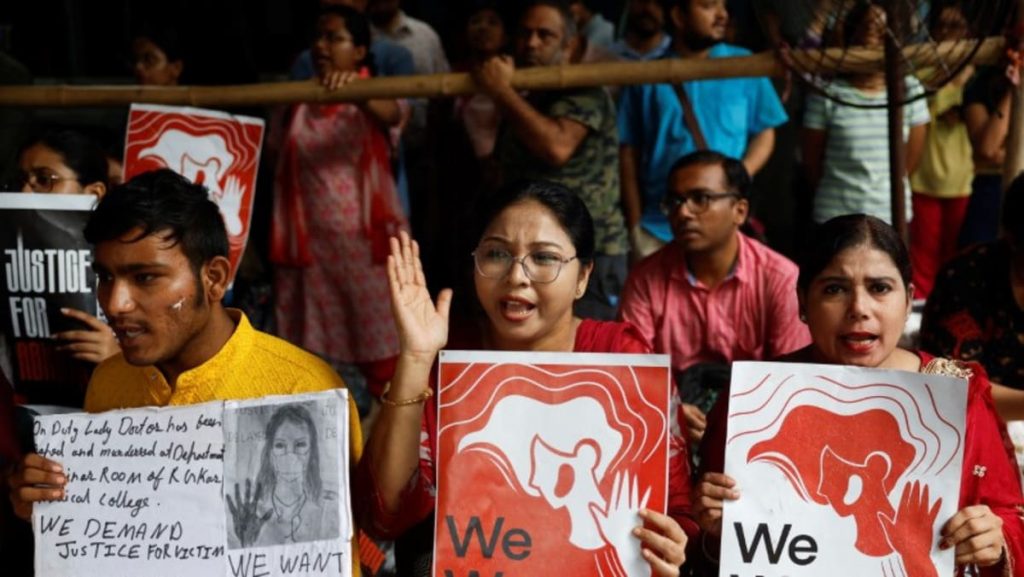Indian medical professionals initiated a 24-hour shutdown of non-emergency services across the country in response to the brutal rape and murder of a doctor in Kolkata. The shutdown, organized by the Indian Medical Association, began at 6am and will impact elective medical procedures and out-patient consultations in the nation. However, emergency services in casualty departments at hospitals will continue to operate as usual. The incident that sparked the protest involved a 31-year-old trainee doctor who was raped and murdered inside a medical college in Kolkata, with many drawing parallels to the infamous gang rape and murder of a student in Delhi in 2012.
The failure of stringent laws to curb violence against women has led to widespread anger among doctors and women’s groups, prompting protests across the country. The IMA president highlighted the significant number of women in the medical profession and emphasized the need for their safety to be prioritized. The strike is expected to involve over a million medical professionals and aims to bring attention to the alarming trend of violence against women in Indian society. Doctors and medical professionals are expressing their solidarity with the victim and calling for immediate action to address the issue of women’s safety in the country.
The shutdown of non-emergency medical services is an unprecedented move by Indian medical professionals to demand justice for the victim and push for action against perpetrators of violence against women. The nationwide protest signifies a united front against gender-based violence and the urgent need for measures to ensure the safety and security of women in the country. The participation of a large number of medical professionals in the strike highlights the determination of the community to stand up against such heinous crimes and advocate for change at a societal level.
The incident in Kolkata has sparked outrage and mobilized a significant section of the medical fraternity to take a stand against the prevalent issue of gender-based violence in India. The strike serves as a powerful statement against the normalization of such crimes and underscores the collective responsibility to address deeply ingrained societal attitudes towards women. The protest also sheds light on the vulnerability of women in various professions, including healthcare, and the need for specific measures to protect them from violence and discrimination in the workplace. The shutdown aims to bring attention to these issues and spur the government to take concrete steps towards ensuring the safety and well-being of women in society.
As the protest gains momentum, it is becoming increasingly clear that the medical community in India is committed to advocating for the rights and safety of women in the country. The widespread participation in the strike showcases the unity and resolve of medical professionals to address the root causes of gender-based violence and bring about lasting change in society. The shutdown of non-emergency services serves as a powerful symbol of solidarity and resistance against the pervasive culture of violence and gender discrimination. By taking a bold stand against such atrocities, the medical fraternity is sending a strong message to the government and the public about the urgent need for comprehensive action to combat gender-based violence and ensure justice for victims.













